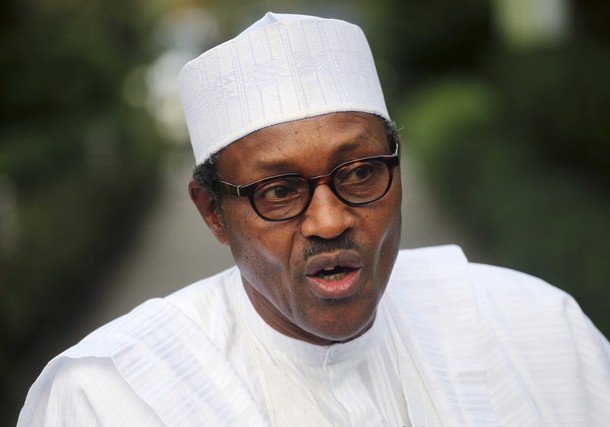By San Jules
Intense lobbying is underway to get the attention of a new government to be inaugurated by May 29, but a failing health system is expected to command the attention of President-elect Muhammadu Buhari, health experts believe. Since winning the March polls, a plethora of demands and letters targeting his ears have hit headlines. Many more papers are bound for his desk when he assumes office in May. The jockeying is to position Nigeria’s health sector in line with Buhari’s own campaign agenda. Essentially, Buhari has a plan—topmost, to review health policies, cut medical tourism and consider minimum basic health care—and every other health demand will have to fit into his plan. Nigeria’s health sector—more than any other sector—and programmes within it are heavily dependent on foreign donors.
The big four
Experts don’t want a long to-do list: just a couple of items that will strike a chord and shame the national ethos, according to Lecky. They worry most about the big four: financing for health, commodities for health, human resources, transparency and accountability. They met in Abuja to draw up a technical brief for Buhari’s consideration ahead of his inauguration.
“There is an inherent struggle,” says Mohammed Lecky, director of Health Reform Foundation of Nigeria. “And the inherent struggle is that we are fighting for a fundamental shift in the system—what kind of country do we want?”
Money is central, and so is finding a way to spread lean resources around—not about pooling funds around but throwing the money where it is needed, he says. Vaccine and universal health coverage are at the top of the heap. Funding from vaccine is split somehow between the government and global donors as GAVI, the World Bank, Rotary International and the Gates Foundation pushing money through UNICEF in Nigeria’s name.
The National Primary Health Care Development Agency, which oversees routine and special immunisation programmes, admits it is “getting very expensive to fully immunise a child.” At least 7.2 million children need vaccines each year, and the number grows by 2.5% every year.
Vaccines this year alone could cost some $150m, and reach $420m by 2020, said Dr Muhammad Ado, executive secretary of the agency. “The reason we are bringing in the private sector is because the landscape is widening in terms of financial requirement for funding immunisation in Nigeria,” according to Dr Muhammad Ado, executive director of NPHCDA. Experts say current system of funding is inadequate, if the question is vaccine and how to guarantee its availability.
“It is actually a security issue if you cannot guarantee your vaccine supply,” says Lecky. “We may not produce vaccines, but we must be able to fund our vaccine availability fully.” A special vaccine funding arrangement involving the private sector has been mooted, but how the Buhari administration takes the issue will be critical. What’s clear is the present is a clear opportunity for “innovative financing” to guarantee universal health coverage. Brazil is hailed as having one of the richest health insurance scheme, funded in part from tiny charges on bank transactions.
Nigeria’s health insurance is still largely a formal-sector preoccupation and employers worry about any sign of rising premium cutting into their profit. With a system like Brazil’s in place, experts also recommend state and community health insurance—in addition to the national scheme—to widen the fund base which pays for health insurance.
Backpedalling
Last week a coalition of health groups lamented the government was backpedalling on commitments it made at a London Summit in 2010 to fund family planning commodities. In its own briefing to Buhari, the group Civil Society for Family Planning in Nigeria (CISFP) said Nigeria’s pledge to provide an annual total of $11.35 million (around N2.2 billion) to procure commodities for family planning has “not been fully realized as promised.”
It also said the government developed a four-year blueprint to scale up family planning nationwide, expected to cost more than $600 million (around N119 billion) until 2018, “and yet no financial allocation to implement this plan,” according to CISFP national coordinator Wale Adeleye. The commitments are many: the Abuja Declaration to commit 15% of national budget to health and the Maputo Plan to ensure universal access to reproductive health services are only two. “The new government needs to know these commitments are important, are of national priority,” says Chinwe Onumonu of the family-planning advocate group AAFP.
Stick and carrot
Resources to meet the commitments are drying up—from reinvested subsidy funds to money from Millennium Development Goals—but a major issue is whether a Buhari government can reignite a political will to see through commitments previous governments have signed onto. “Let us start with focusing on some of those softer nuisances that affect political will,” says Muhammed Saleh of the Development Research and Projects Centre. Advocacy will spread into demand for improved human resource for health and transparency. The rings of influence and allies in a Buhari administration, alongside federal legislators in health committees in parliament will be targets in much the same fashion as those in Jonathan administration came under bombardment from entrenched proponents of the National Health Act. But the message will be “prescriptive and simple,” says Offiong Enang of Plan International.
The thrust is to move the government where the public wants, instead of moving the public where Buhari’s blueprint points. Enang explains, “Let us create the impact in the end users [allowing communities to demand instead for services that they need]. If the community cannot connect, then the government has failed.”




